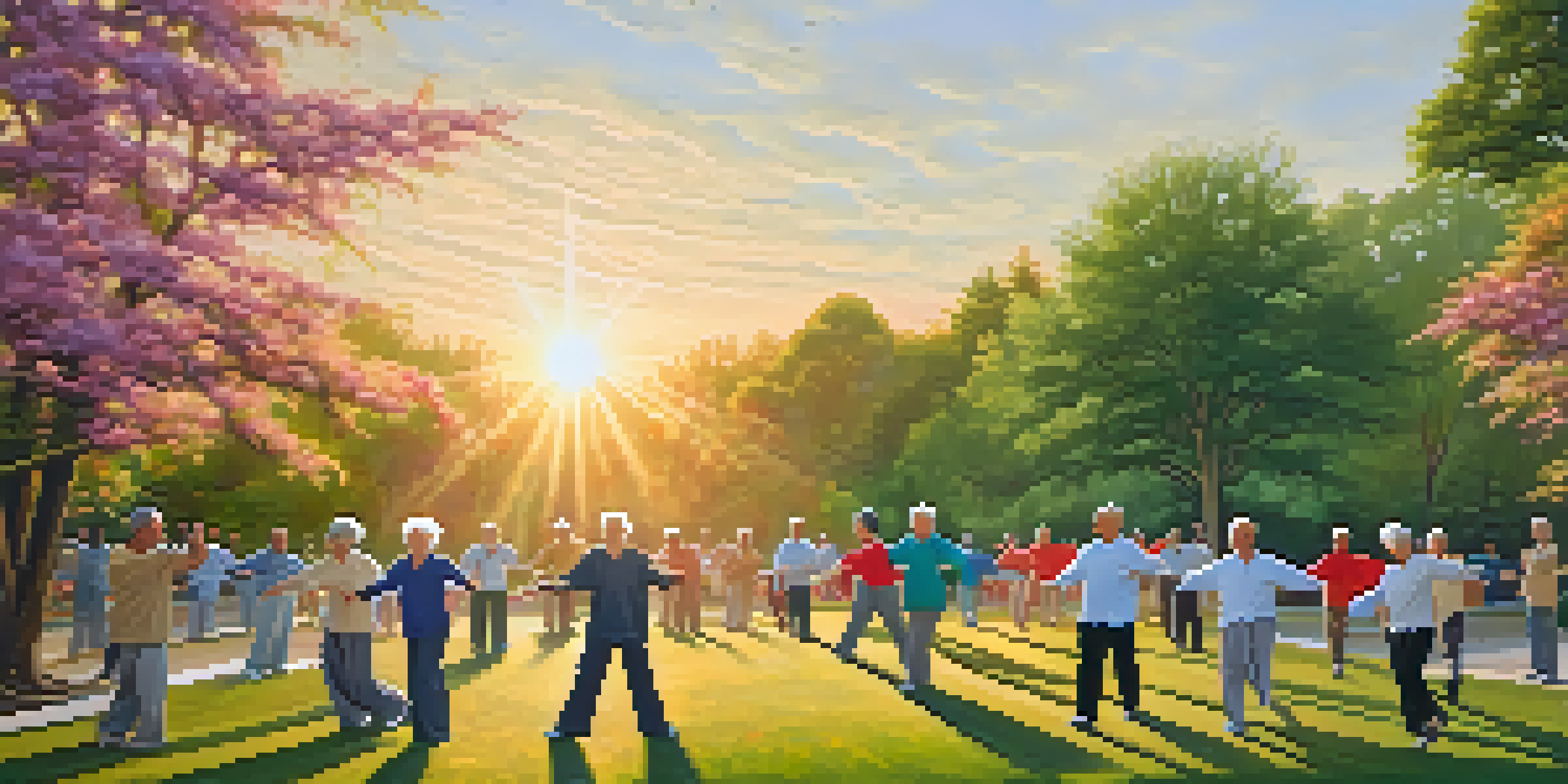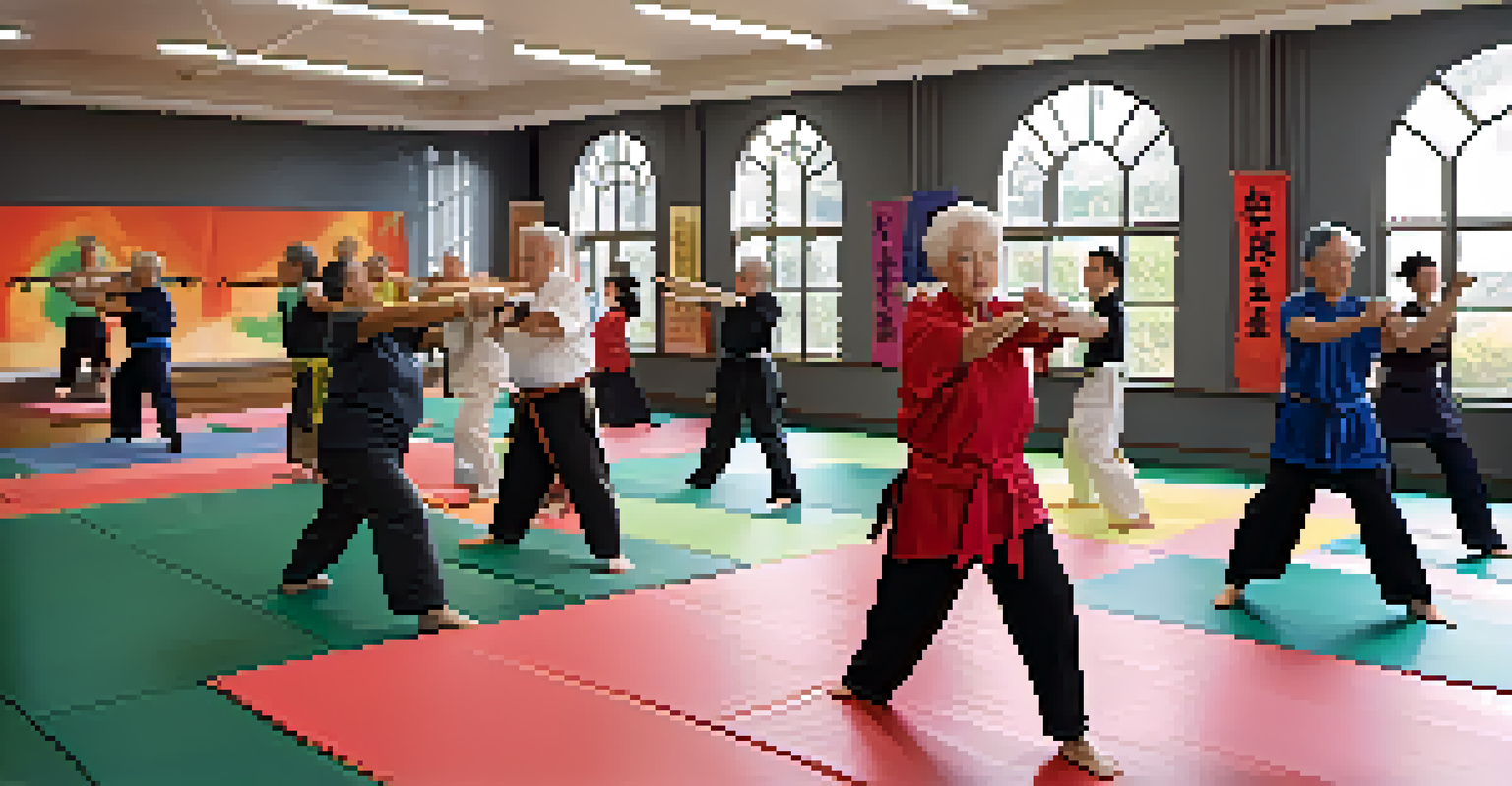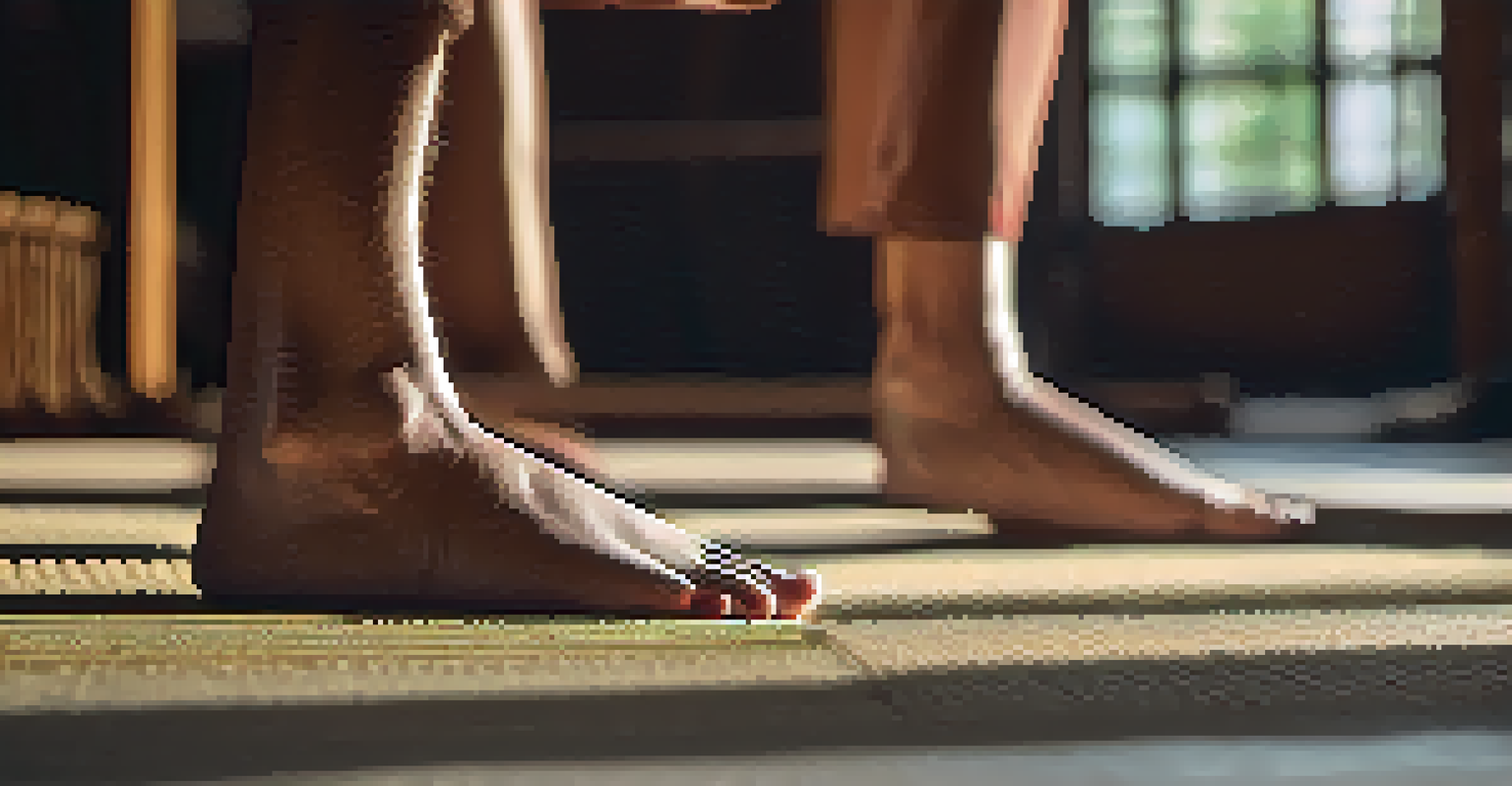The Role of Martial Arts in Fall Prevention for Seniors

Why Fall Prevention is Crucial for Seniors
Falls are one of the leading causes of injury among seniors, with serious consequences ranging from fractures to reduced mobility. As we age, our balance, strength, and coordination can decline, making us more vulnerable to falls. Understanding the importance of fall prevention is essential for maintaining independence and quality of life.
The greatest weapon against stress is our ability to choose one thought over another.
Statistics reveal that one in four seniors experiences a fall each year, which emphasizes the need for effective prevention strategies. Not only do falls pose a physical threat, but they can also lead to emotional challenges, such as fear of falling again, which may limit activities. Thus, proactive measures are vital in reducing these risks.
Integrating exercises that enhance balance and coordination is a key component of fall prevention. One effective and engaging way to achieve this is through martial arts, which offers a structured approach to improving physical stability while also fostering mental discipline.
Martial Arts: A Unique Approach to Fitness
Martial arts encompass a range of practices, from Tai Chi to Karate, each offering unique benefits tailored to various fitness levels. Unlike conventional exercise routines, martial arts often focus on balance, flexibility, and core strength, which are essential for preventing falls. The combination of physical and mental training empowers seniors to build confidence in their movements.

Many martial arts forms emphasize slow, controlled movements, making them accessible for seniors who may be concerned about injury. For instance, Tai Chi is particularly renowned for its gentle flow and focus on balance, making it a popular choice among older adults. This approach not only promotes physical health but also encourages mindfulness and relaxation.
Falls Risk is High for Seniors
One in four seniors experiences a fall each year, highlighting the urgent need for effective prevention strategies.
Moreover, martial arts practices often incorporate breathing techniques and mental focus, which can help reduce stress and improve overall well-being. This holistic approach to fitness makes martial arts an appealing option for seniors looking to enhance their physical capabilities while enjoying a supportive community.
Improving Balance Through Martial Arts Training
One of the most significant benefits of martial arts is its ability to improve balance. Many techniques require practitioners to shift their weight and maintain stability, essential skills for fall prevention. For example, practicing stances and movements in martial arts helps enhance proprioception, or the awareness of body position, which is crucial for maintaining balance.
Movement is a medicine for creating change in a person's physical, emotional, and mental states.
As seniors engage in regular martial arts training, they often find that their confidence in walking and performing daily activities increases. This newfound confidence can significantly reduce the fear of falling, allowing them to engage more fully in life. In essence, martial arts training equips seniors with the tools they need to navigate their environment safely.
Additionally, martial arts classes often foster camaraderie among participants, creating a supportive network that encourages consistent practice. This social aspect can motivate seniors to stick with their training, leading to long-term benefits for their balance and overall health.
Strengthening Muscles to Prevent Falls
Strength training is another vital aspect of fall prevention, and martial arts inherently promotes muscle development. Through various techniques, seniors engage different muscle groups, enhancing their overall strength and resilience. Stronger muscles provide the support needed to stabilize the body, particularly during unexpected movements.
For instance, martial arts moves often involve squats, lunges, and core exercises, all of which contribute to improved muscle strength. This increased strength is critical for seniors, as it can help them recover more easily from slips or stumbles. Improved muscle tone not only aids in fall prevention but also enhances overall mobility and endurance.
Martial Arts Boosts Balance and Strength
Practicing martial arts enhances balance, strength, and flexibility, all of which are essential for fall prevention in seniors.
Furthermore, as seniors build muscle through martial arts, they also improve their joint stability and flexibility. This combination allows for more fluid movements, reducing the risk of tripping and falling. Ultimately, martial arts training offers a comprehensive approach to strengthening the body against falls.
Enhancing Flexibility for Greater Mobility
Flexibility is often overlooked in discussions about fall prevention, yet it plays a crucial role in maintaining mobility. Martial arts training includes stretching routines that promote flexibility, allowing seniors to move more freely and confidently. Increased flexibility helps in preventing strains and sprains, which can lead to falls.
Many martial arts disciplines incorporate dynamic stretching and controlled movements, which can improve the range of motion in joints. For example, the fluid movements in Tai Chi help seniors become more limber and agile, making it easier to navigate their surroundings. This newfound range of motion is essential for avoiding potential hazards that could lead to falls.
Moreover, enhanced flexibility contributes to better overall posture, further reducing the risk of falls. When seniors maintain proper posture, their balance improves, allowing them to respond quickly to shifts in their environment. Thus, martial arts serves as an effective pathway to achieving greater flexibility and mobility.
Mental Benefits of Martial Arts for Seniors
Beyond physical improvements, martial arts offers significant mental benefits that can aid in fall prevention. Training requires focus and concentration, helping seniors sharpen their cognitive skills. This mental engagement is crucial, as heightened awareness of one's surroundings plays a vital role in preventing falls.
Additionally, martial arts often includes techniques that promote mindfulness and stress reduction. Practices such as meditation and deep breathing can help seniors manage anxiety and improve their overall emotional health. A calm mind contributes to better decision-making, allowing seniors to navigate their environment more safely.
Mental Benefits Aid Fall Prevention
Martial arts training improves focus and confidence, empowering seniors to engage more safely in daily activities.
Furthermore, the sense of achievement that comes from mastering new techniques can boost self-esteem and confidence. When seniors feel empowered, they are more likely to engage in activities that promote mobility and independence, ultimately reducing their risk of falls.
Finding the Right Martial Arts Program for Seniors
Choosing the right martial arts program is critical for maximizing the benefits for seniors. It's essential to look for classes specifically designed for older adults, where the pace is manageable and the focus is on safety. Many community centers and studios now offer senior-friendly options, ensuring that participants feel comfortable and supported.
Before enrolling, seniors should consider visiting a class to observe and ask questions about the training approach. Instructors should be knowledgeable about the unique needs of older adults and be able to modify exercises as necessary. This personalization is crucial to ensure that seniors can safely engage in the practice without risking injury.

Additionally, it's beneficial to find a class that fosters a sense of community. Training in a supportive environment can greatly enhance motivation and commitment to practice. By connecting with others who share similar goals, seniors can enjoy the journey of martial arts while simultaneously prioritizing their fall prevention efforts.